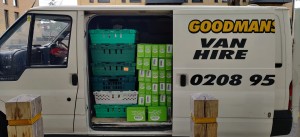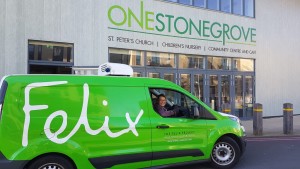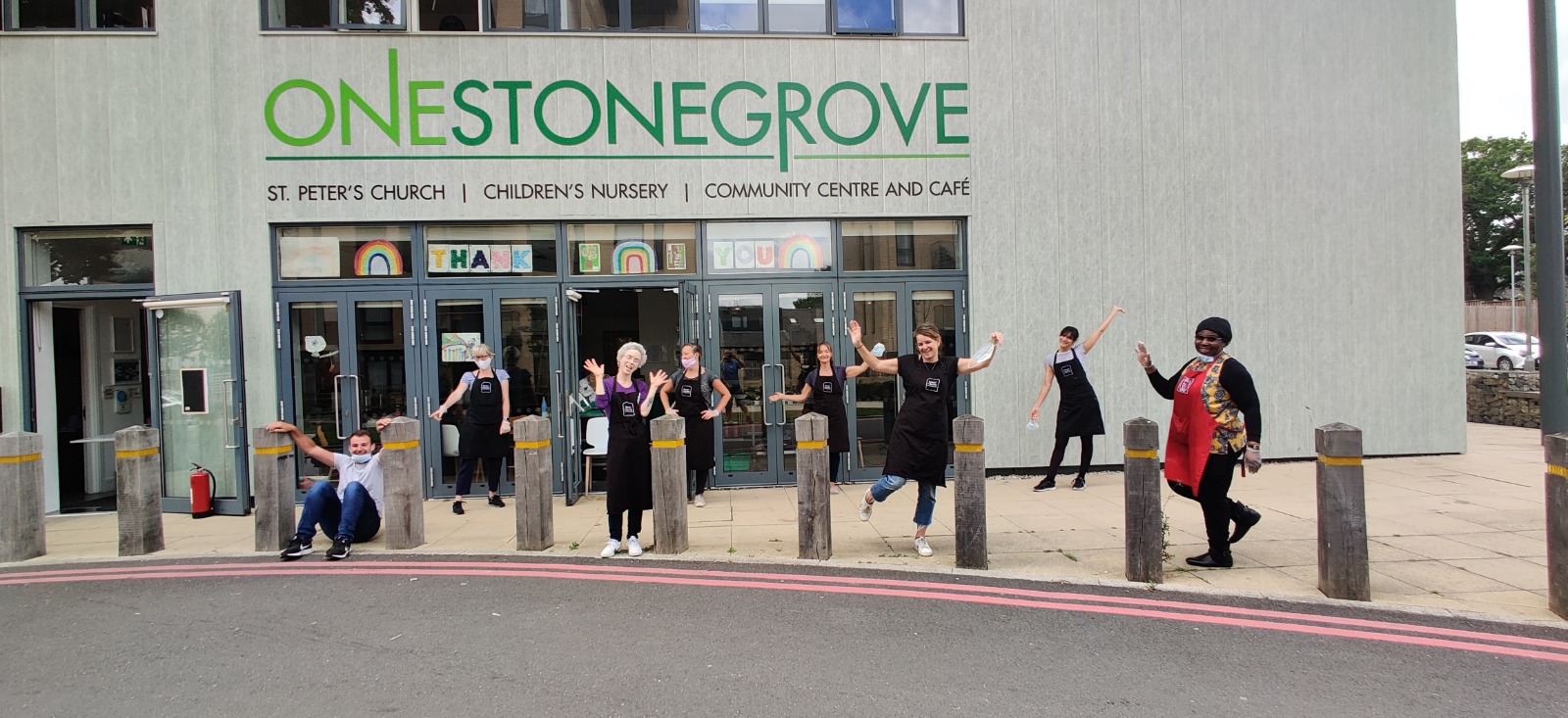I’m writing this not knowing whether anyone else will ever read it, as I haven’t decided if this will be a blog post, or just a rambling Word document that I’ll file away as a souvenir of a truly exceptional year. I’m going to write chronologically about my experience of Covid-19 – mostly my professional experience working as CEO of the Stonegrove Community Trust.
So, where to begin? A quick look on the Wikipedia Timeline of the Covid-19 pandemic in England tells me that the first two cases in England were confirmed on 31st January. In late February my wife & I were due to travel to Bologna – her for work and me tagging along for the amazing food, and just a break generally. This of course was cancelled, which was the first time I started taking this more seriously, though still had no idea of what was to come.
In mid March I was to due to deliver some training on fundraising at the Eden Project – as the date approached I knew it would be cancelled, though that was only confirmed a couple of days before I was due to go. As I had four nights of non-refundable accommodation bookings and first class train travel, wisely or not I decided to travel. I stayed first in Bodmin, and had my first rate friend and tour guide John Lakey who showed me some of the most beautiful parts of Cornwall, and his amazing projects under the Cultivate Cornwall banner. We talked lots, about the world and what was currently happening, and about what our places were in it, and how we should respond within the communities that we lived in and worked in. It was clear at this point to both of us that the “every day” operations of our projects would be closed down imminently, so we talked about what challenges we thought might be coming, and how we could work with what we had, to meet those challenges. I came back to London on the afternoon of Monday 16th March, really fired up and inspired, with the beginnings of a idea forming in my head. That evening my wife and I had some last minute freebie theatre tickets, so we travelled into the West End. That was the evening they shut down all theatres, about half an hour before the show was due to start.
I sat up late trying to write a proposal that I could send to everyone I work with at OneStonegrove. My ideas weren’t fully formed enough at that point, so instead of sending it to everyone, I took the document as notes and winged it the next morning, at a meeting that I had set up with my colleagues from the various organisations in OneStonegrove.
It’s worth at this point explaining OneStonegrove, as the structure of our centre and charity gave us the base to build from, and be successful. I run the Stonegrove Community Trust – we are a resident-led charity on a regenerated housing estate of 1,000 homes, where we operate a community centre and associated activities. The centre is called OneStonegrove, and we share it with a Church of England church (St Peters), with an arrangement that gives each of us 50% beneficial ownership to fulfil our aims. Operational management of the centre is contracted to The Hive Foundation, and at the beginning of 2020 Bread n Butter were running the on-site café. We have a nursery upstairs, run by a private company. These amazing partnerships gave us a great base to build upon throughout 2020. Though there has been some challenges throughout the year, the ways we have come together have really developed the relationships and partnerships, and bodes very well for our work together in 2021 and beyond.
Tuesday 17th March, 10am in the Goldsmiths Hall, OneStonegrove
Present: John, Sandra & Matt from The Hive Foundation ; Simon & Margit from St Peter’s Church; Chloe from Little Leaders Nursery; Dan, David & me from Stonegrove Community Trust; Natasha and Vicki from Bread n Butter.
Apologies: None.
We spoke generally about the centre and when we might have to close. As it turned out it was within four days – last activity was Gymnastics on the Saturday morning. I spoke about my idea – that we should all collaborate and try to meet the most pressing needs of people within our community. We agreed to do the following:
- Begin cooking and delivering homemade “ready meals” to those who needed them.
- Expand our foodbank provision, and to provide delivery for those who needed it.
- Beaj, our Community Connector, would pivot her work to provide weekly check-in/befriending phone calls for those identified as most “at-risk”.
The preparations started that day – by the time we went home we had purchased takeaway containers, had started to search for volunteers, and had begun to reach out through partners such as Age UK Barnet to ascertain what the levels of need were. A few months after that meeting, one person who had been there said the following to me “To be honest – I thought you were mad, and that we’d just do this for a few weeks, and then we would realise it wasn’t needed, and could all go back to normal”. Clearly that wasn’t the case, though I make absolutely no claims to knowing what was coming. In truth I had no idea whether what we were going to do was sensible or needed. I just knew that I couldn’t sit around and do nothing, and that this something was the best idea that we had at that moment.
I’m writing this now, before I forget everything that happened, and how it happened. In truth though I’ve already forgotten more than I remember, and we didn’t start keeping robust records of our operations until early June. By that time we were cooking 300+ meals a day, working with around 25 different community groups, and had already delivered the equivalent of 8,500 meals to those in need. I’ll cover more of that in the next part…
2020 – a truly exceptional year – Part 2



